When Jane Fonda opened that envelope and called Bong Joon-ho and his team to the stage, we really should have known. The Oscars were not supposed to get it right, it was too perfect. From a moment like that there was nowhere to go but down, way down.
The rest of 2020 turned out to be quite a historic dumpster fire. As much as you think you’ve gotten used to it by now, the bleak news updates, the sight of cities on lockdown or trainfuls of masked passengers still strike me as dizzyingly surreal sometimes. Like waking up inside an elaborate Terry Gilliam production.
As with most other cultural sites, cinemas were first in line to be shuttered for being non-essential. From an epidemiological perspective it’s hard to argue against this. In every other regard, however, film (or music, books and other forms of storytelling) proved even more essential in a pandemic. How else do you see the world beyond the confinement, connect with people you can no longer meet or just get out of your head for an hour or two?
Speaking for myself, I was grateful to be brought back to the sun-kissed Summer of 85 by François Ozon and reminded of the ecstasy, danger, and heady rush of first love. I relished that feeling of real intimacy when you meet someone so very different yet so inexplicably on your wavelength in Cooper Raiff’s Shithouse. I was thoroughly charmed by the innocent bond between an unlikely duo from 1820’s America (and of course by those oily cakes) in Kelly Reichardt’s First Cow. And the team of Fanny Liatard and Jérémy Trouilh swept me away with Gagarine, their audaciously conceived, expertly executed debut about the collective memories that tie a community to the place they call home in contemporary France.
Isabella by Argentinian auteur Matías Piñeiro and Fauna from Mexico’s Nicolás Pereda are two mind-bending puzzles that dazzled with their multi-layered, existential reflections on the essence of performance. Equally challenging in their questioning of life, death and morality are android sci-fi thriller The Trouble With Being Born from Austria’s Sandra Wollner and Azerbaijani filmmaker Hilal Baydarov’s austere modern-day fable In Between Dying. Then there’s Adilkhan Yerzhanov’s Kazakhstan-set Yellow Cat, an absurdist oddity with echoes of both Miranda July and Stephen Chow that packs an unexpected fatalist punch.
Great acting sparks empathy that helps us feel our common humanity. This applies as much to the ensemble cast of George C. Wolfe’s furious, timely Ma Rainey’s Black Bottom, led by the majestic Viola Davis and Chadwick Boseman, as it does to the group of comedic genius that made Emma Seligman’s Shiva Baby such a riotous symphony of faux pas. Two marital dramas that deconstruct the painful end of relationships – Italian veteran Daniele Luchetti’s The Ties and Hungarian director Kornél Mundruczó’s Pieces of a Woman – also boast wonderful performances that take you through their protagonists’ complex inner journeys.
Lastly, in a year that has given us such compelling documentaries as Garrett Bradley’s Time and Alexander Nanau’s Collective, I was even more impressed by the docufiction experiments that reconsider reality and further expand the possibilities of narrative filmmaking. Cases in point include If It Were Love by Patric Chiha, which is so breezily understated in its approach it catches you off guard when the profiled members of a dance troupe begin to bleed into the characters they portray on stage, and Nuria Giménez’s My Mexican Bretzel, arguably the most conceptually inspired film of the year which weaves together real-life diary entries and vintage found footage to such clever effect it makes you see how truth is but a matter of perspective. And what about Tsai Ming-liang’s unscripted, soul-baringly stripped Days? At this point in his and lead actor Lee Kang-sheng’s joint creative career, can anything they do be called an act at all?
Now, on to the favorites.
Honorable Mentions: His House, True Mothers, Apples, Undine, and This Is Not a Burial, It’s a Resurrection
10. The Story of Southern Islet (Chong Keat Aun)
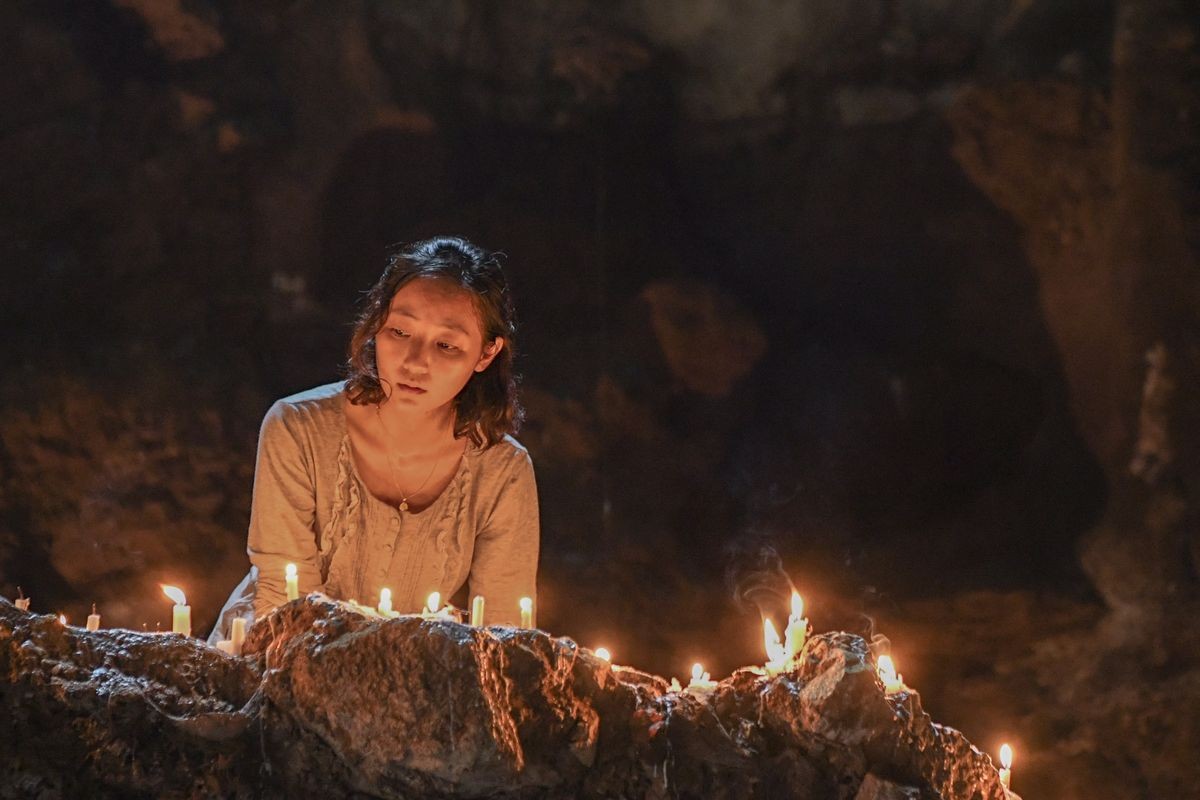
Supernatural horror gets a patient, naturalistic makeover (think a Hou Hsiao-Hsien joint where the father figure spews rusted nails) in this lyrical, thoughtful debut. The authentically rendered sense of space and time not only transports you to the mythical borderland of Malaysia/Thailand in the 1980’s, but a place where dreams are stranded for centuries and legends very much alive. Through his unique vision of voodoo and the spiritual world, Chong pays fitting, moving tribute to all things in transit and the vastness of the unknown.
9. Lovers Rock (Steve McQueen)
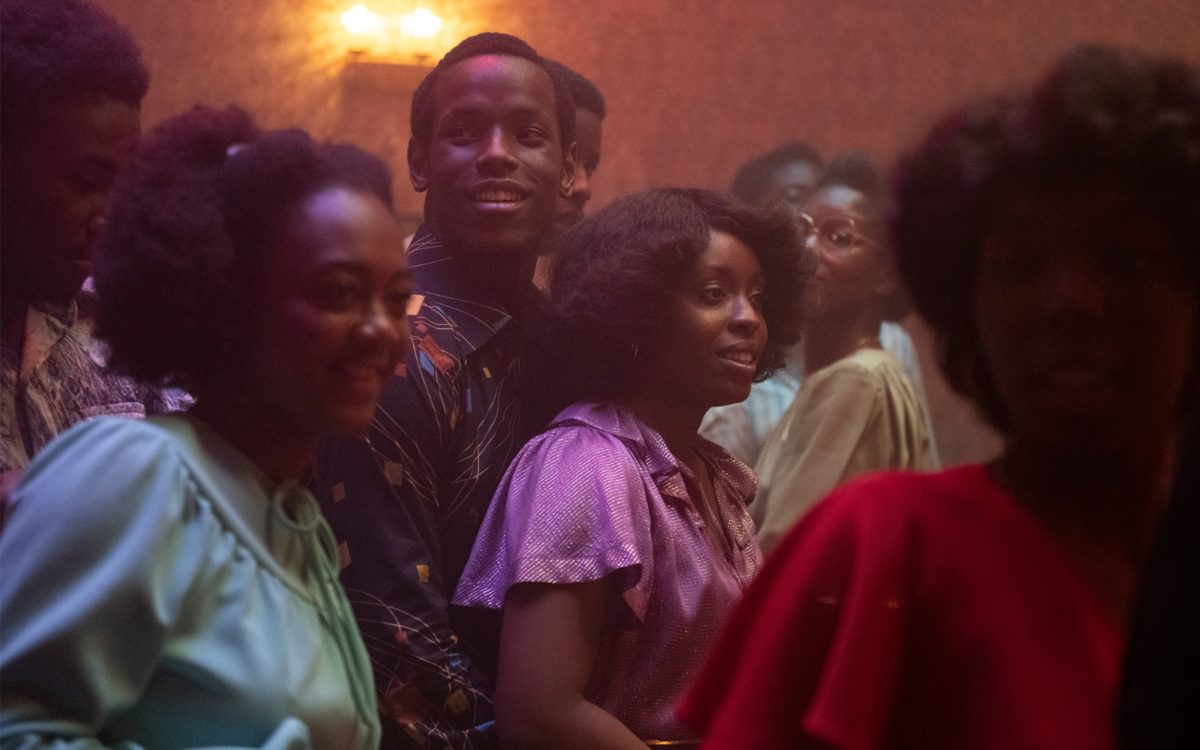
The film that answers the question “What if Steve McQueen made In the Mood for Love” is every bit as ravishing and intoxicating as one would expect. The style, the groove, the nostalgia, it’s all there in a breathtaking throwback to simpler, sexier times. Shot with palpable heat by Shabier Kirchner and gloriously DJ’ed with a score by Mica Levi, this standout entry in the Small Axe anthology is a celebration of being black, being free, being together. It’s the perfect antidote to a year of social-distancing that immortalizes the magic of the human touch.
8. The Whaler Boy (Philipp Yuryev)
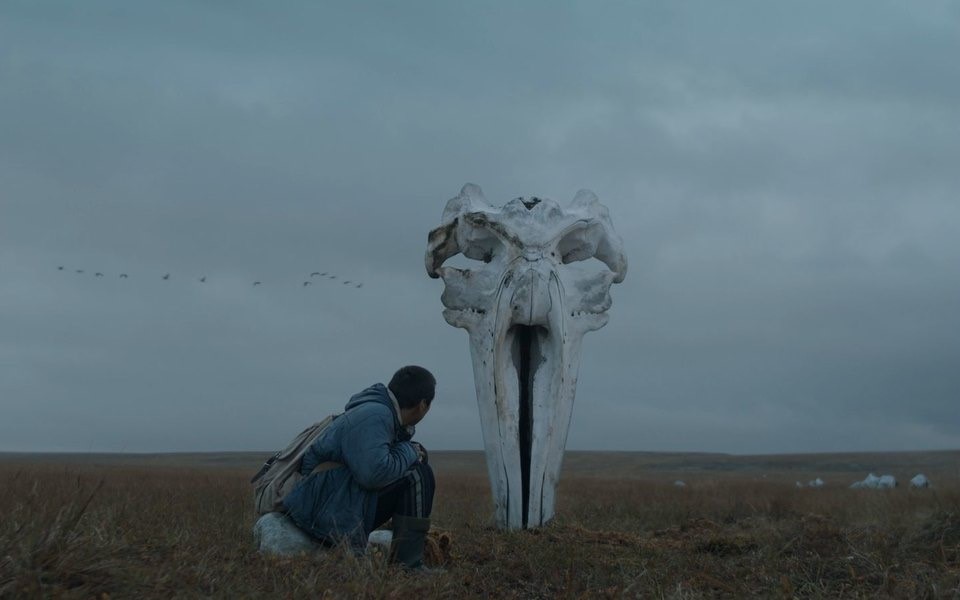
Set in the arctic cold of the Chukchi Peninsula, this visually striking coming-of-age story finds among landscapes of otherworldly beauty the very familiar solitude of a teenager. With exceptional imaginative prowess, Yuryev crafts a narrative arc for his protagonist that’s as surprising as it is insightful, revealing deep emotional truths at every turn. When the quiet boy finally gets lost in a cosmic fog and pauses to reflect on his quest for love and freedom, it feels like we the viewers are also breathing in the air of something merciful, all-illuminating.
7. Da 5 Bloods (Spike Lee)

Wars never end. To process the singularly messy wounds left by acts of collective inhumanity and amnesia, big is the only way to go. So thank God for this mad, masterfully calibrated hybrid of treasure hunt, cautionary tale, race drama, political satire that’s so over-the-top as to actually hit the absurd notes of extreme tragedy. At this stage Lee has nothing left to prove, but proves anyway that he’s still the definitive communicator, professor and philosopher of the Black experience in contemporary America. And what jazzy receipts he’s brought.
6. The Disciple (Chaitanya Tamhane)
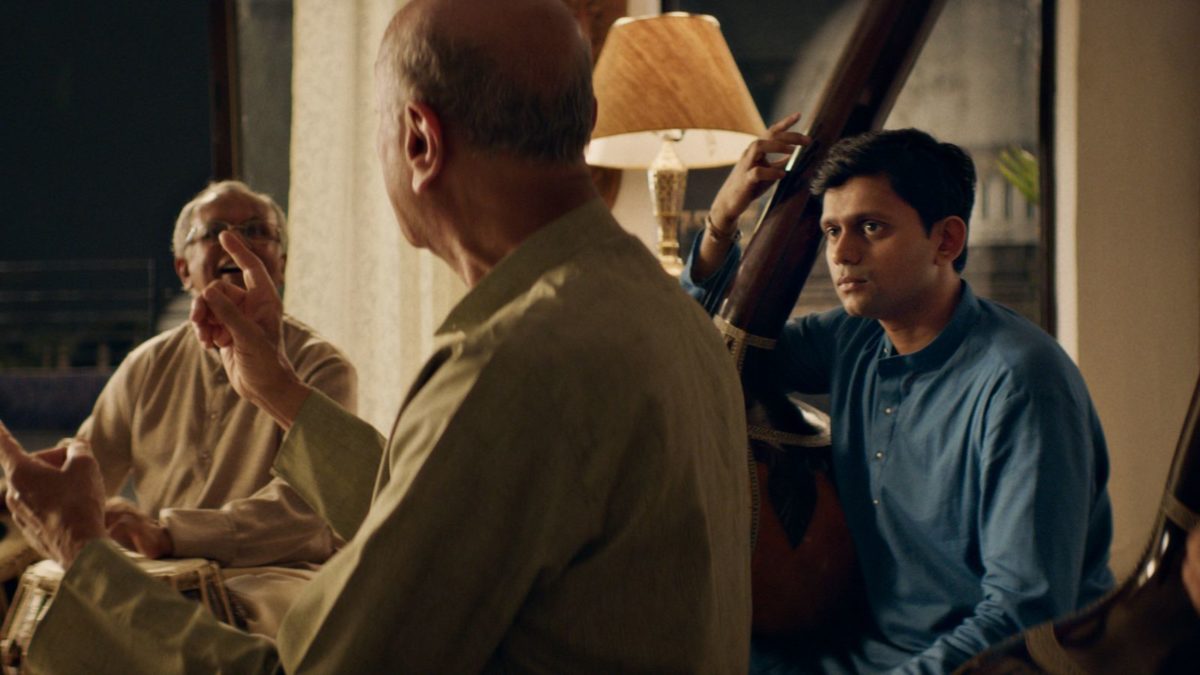
In life we can’t all be winners––a brutally simple, often painful truth communicated with tenderness and a remarkable lack of cynicism in Tamhane’s exquisite sophomore feature. Embedded in the enchanting world of Indian classical music, it chronicles one man’s attempt at glory and ends up an ode to all of history’s also-rans, their stories unremembered if no less profound. While looking and sounding heavenly throughout, you won’t find another film this year more firmly rooted in the earthly compassion of humanist cinema.
5. Shirley (Josephine Decker)
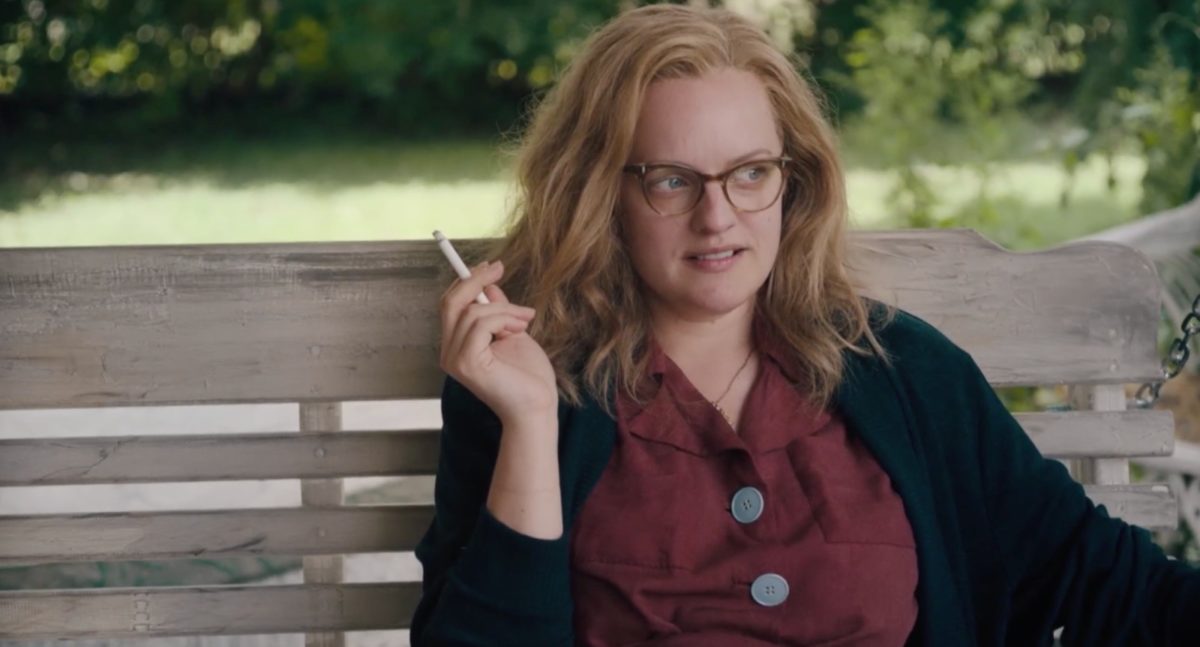
Decker’s portrait of a lady on fire is the kind of biopic I can get behind. Anchored by Elizabeth Moss’ mesmerizing performance as Shirley Jackson, the jagged, thickly atmospheric film taps into an extraordinary mind way ahead of its time and lets out all the unadulterated female rage it finds. As brutally unpleasant as the heroine might come across, there’s an honesty and urgency to this take on her life that’s not just deeply satisfying but fully justified too as, half a century later, we’re still dealing with some of the same demons she faced.
4. Never Rarely Sometimes Always (Eliza Hittman)
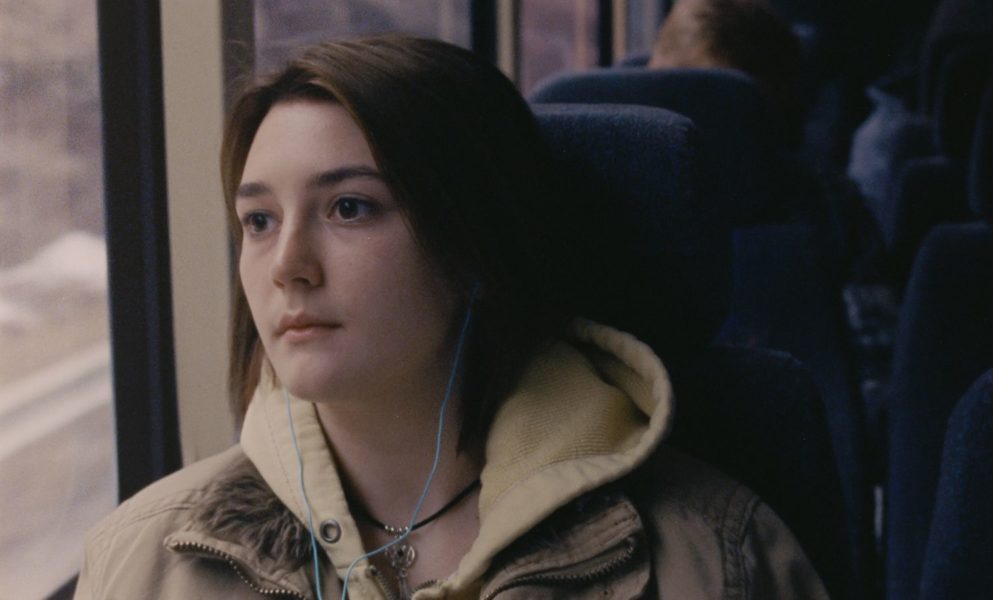
One doesn’t come across screenwriting as powerful as that of the titular scene in this abortion drama very often. Acutely perceptive, uncommonly empathetic, the dialogue between a counselor and her subject turns four of the simplest words in the English language into its most eloquent, devastating. With a gentle dispassion that never sentimentalizes the material, Hittman observes the desperate day trip of two girls and dares you to imagine the many Autumn’s and Skylar’s that are wandering through New York, looking for a way out.
3. Beginning (Déa Kulumbegashvili)

Recalling a feminized Haneke or a nastier Lanthimos, Kulumbegashvili’s feature debut astonishes with its utterly original point of view and bold, hypnotic mise-en-scène. Pristinely told with no expositive or stylistic clutter, the story about a woman having a crisis of faith evokes a dread so subtle and primal it borders on the animalistic. Great art works in mysterious ways. One might never be able to fully explain the grandeur of a quiet little film like this, but that thrill of being touched by the work of a true visionary is unmistakable.
2. The Metamorphosis of Birds (Catarina Vasconcelos)
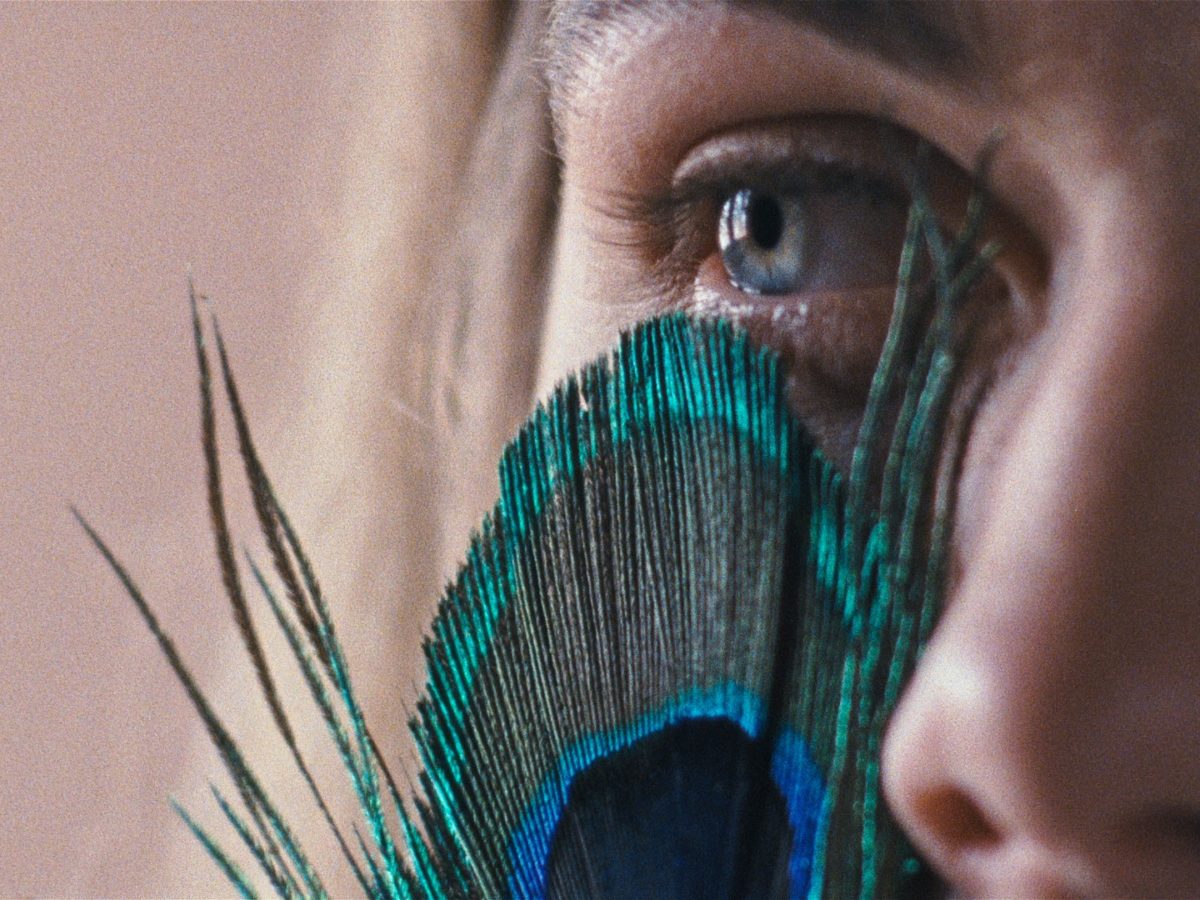
The most purely, incandescently beautiful movie of the year is a dreamy cross between documentary and fiction that explores the tricky matter of one’s own lineage. As in a daze, we see three generations of love and sorrow reincarnated in a kaleidoscope of spellbinding images, beneath which there’s longing, there’s blame, and above all there’s a sense of genuine revelation. Families are messy and closure is a myth, but with storytelling this vitally expressive, one may actually hope to heal and someday understand.
1. Nomadland (Chloé Zhao)
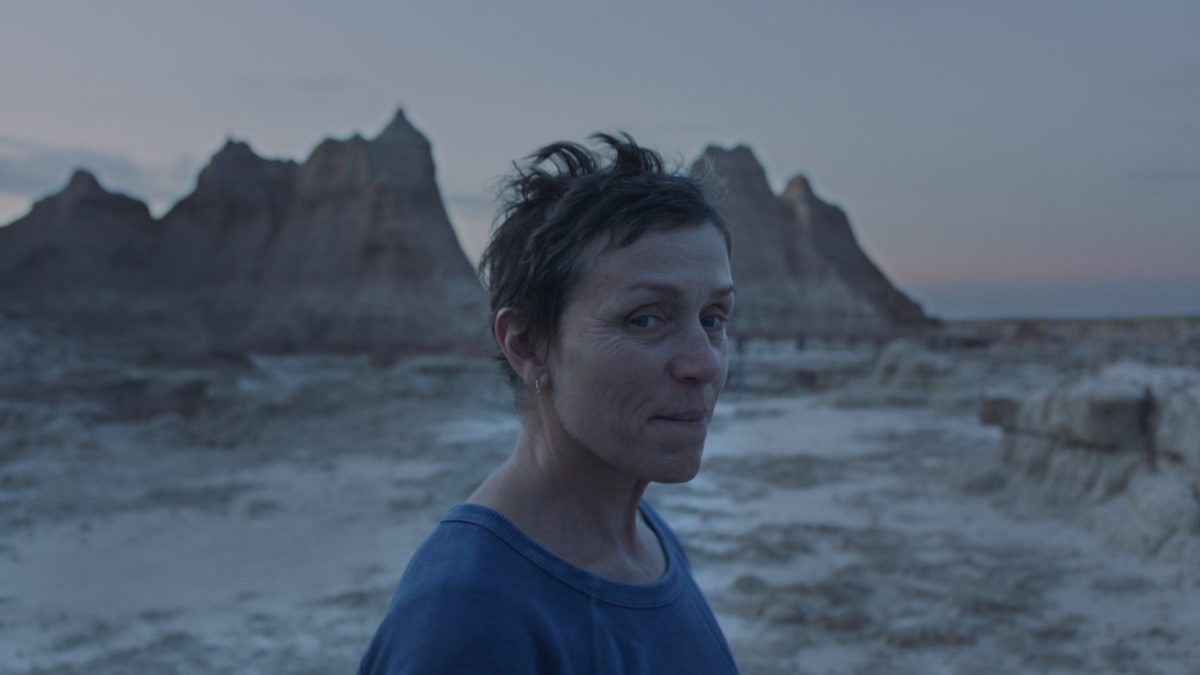
With humility, grace and miraculous finesse, Zhao captures the wistfulness in our zeitgeist with an homage to those who––willingly or unwillingly––call the road their home. Frances McDormand is the personification of dignity in the face of unwinnable odds, breaking your heart time and again even when her character Fern can’t afford such luxuries as feelings. Generous in its appreciation of life’s small wonders, this transcendently wise film somehow internalizes all the hurt and disappointments of 2020 and manages to inspire something freeing, reassuring, almost like hope.
